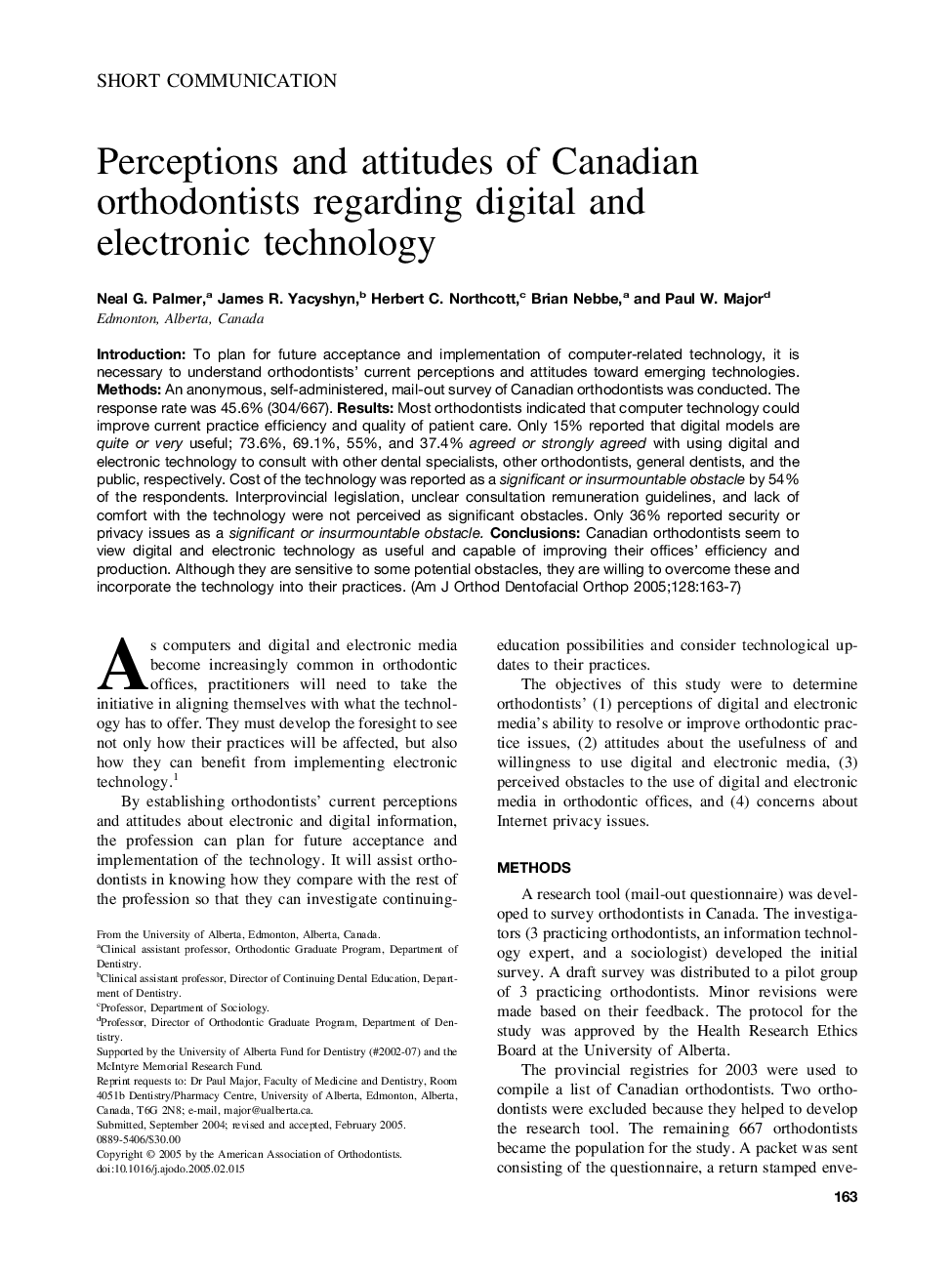| Article ID | Journal | Published Year | Pages | File Type |
|---|---|---|---|---|
| 9992722 | American Journal of Orthodontics and Dentofacial Orthopedics | 2005 | 5 Pages |
Abstract
Introduction: To plan for future acceptance and implementation of computer-related technology, it is necessary to understand orthodontists' current perceptions and attitudes toward emerging technologies. Methods: An anonymous, self-administered, mail-out survey of Canadian orthodontists was conducted. The response rate was 45.6% (304/667). Results: Most orthodontists indicated that computer technology could improve current practice efficiency and quality of patient care. Only 15% reported that digital models are quite or very useful; 73.6%, 69.1%, 55%, and 37.4% agreed or strongly agreed with using digital and electronic technology to consult with other dental specialists, other orthodontists, general dentists, and the public, respectively. Cost of the technology was reported as a significant or insurmountable obstacle by 54% of the respondents. Interprovincial legislation, unclear consultation remuneration guidelines, and lack of comfort with the technology were not perceived as significant obstacles. Only 36% reported security or privacy issues as a significant or insurmountable obstacle. Conclusions: Canadian orthodontists seem to view digital and electronic technology as useful and capable of improving their offices' efficiency and production. Although they are sensitive to some potential obstacles, they are willing to overcome these and incorporate the technology into their practices.
Related Topics
Health Sciences
Medicine and Dentistry
Dentistry, Oral Surgery and Medicine
Authors
Neal G. Palmer, James R. Yacyshyn, Herbert C. Northcott, Brian Nebbe, Paul W. Major,
